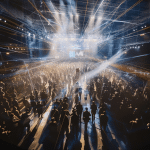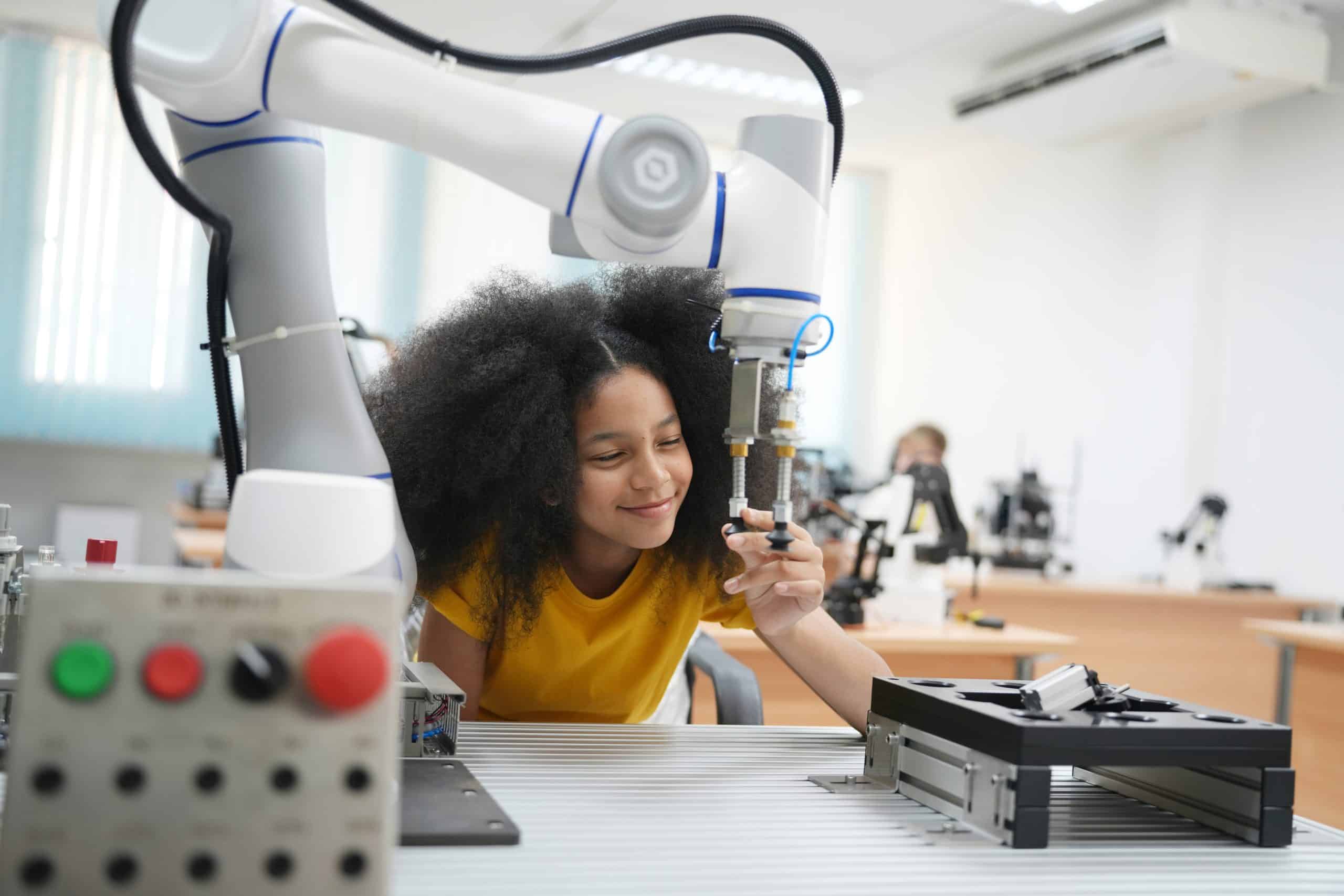Music is an essential part of the human experience. It is more than mere entertainment; it is a means of expression, a method of communication, and a universal language that connects people across borders. But in recent years, a new actor has emerged in the music industry that is pushing the boundaries of musical creativity and production: Artificial Intelligence, or AI. This article will explore the various ways in which AI-powered platforms are influencing the creative process behind music composition and production.
The Intersection of Music and Technology
Music and technology have always been intertwined. From the invention of the first musical instruments thousands of years ago to the development of digital music production tools in recent years, technology has continuously influenced how musicians create and produce music. However, the advent of AI and machine learning has introduced a new layer to this relationship, providing musicians with a wealth of creative tools and possibilities that were previously unimaginable.
Have you seen this : What Are the Ethical and Regulatory Considerations for Autonomous Surgical Robots?
AI-powered tools are not meant to replace human musicians, but rather to assist them in their creative process. They provide musicians with new ways to experiment with different sounds, structures, and styles, ultimately enriching their compositions. Furthermore, AI can analyze vast amounts of musical data, identifying patterns and trends that can inspire new creative directions.
AI and Music Composition
While some artists might shudder at the thought of a machine creating music, many have embraced the possibilities generated by AI in the composition process. To understand how AI is used in music composition, it’s important to grasp the basis of AI technology.
In the same genre : How Is AI Being Utilized to Enhance User Interaction in Video Games?
AI algorithms are capable of analyzing vast amounts of data and learning from it. In the context of music, they can be fed with a plethora of musical compositions from different genres, periods, and artists. The AI can then analyze these compositions, learn their structures and patterns, and generate new compositions based on what it has learned. This does not mean that the AI is "creative" in the human sense, but rather that it is capable of producing content that is consistent with its training data.
Artists can use these AI-generated compositions as a starting point, tweaking and refining them to suit their creative vision. In this way, AI serves as a creative partner, providing fresh ideas and perspectives that the artist might not have considered.
AI in the Music Production Process
As much as AI can assist in the creative process of music composition, its applications extend further into the music production process. There are now AI-powered platforms that can help artists mix and master their tracks, streamlining the process and freeing up more time for the creative aspects of music production.
These platforms use AI algorithms to analyze the audio content of a track and make adjustments to elements such as volume, equalization, and compression. They can also provide suggestions for improvements, based on what the AI has learned from analyzing other successful tracks.
Such tools democratize the music production process, allowing even those with limited technical skills to produce high-quality music. This opens up the music industry to a wider array of artists and musicians, fostering a more diverse and vibrant musical landscape.
The Future of AI in Music
The intersection of AI and music is still a relatively young field, but it holds immense potential for the future. As AI technology continues to improve and evolve, so too will its applications in music. While some fear that AI might stifle human creativity or replace human musicians, the opposite seems to be true.
AI provides artists with a wealth of new creative tools, enabling them to push the boundaries of their creativity and produce music that is fresh, innovative, and unique. It is not a replacement for human creativity, but rather a supplement to it. Music, after all, is a deeply human art form, and while AI can assist in the creative process, it cannot replicate the human touch.
The Potential Challenges and Ethical Considerations
Despite the exciting potential of AI in music, it also raises important challenges and ethical considerations that need to be addressed. For instance, who owns the rights to music generated by AI? Is it the person who trained the AI, the person who tweaked the AI’s output, or the AI itself? These are complex questions that the music industry will need to grapple with as AI continues to play a larger role in music composition and production.
Moreover, there is the risk of AI leading to homogenization in music. If artists rely too heavily on AI for inspiration, they may end up creating music that is too similar to what has come before, stifling innovation and diversity in the music industry.
It’s clear that the relationship between AI and music is complex and multifaceted. But as long as artists and industry professionals approach it with an open mind and a critical eye, AI has the potential to push the boundaries of music in exciting and unexpected ways. Ultimately, the key is to strike a balance, harnessing the power of AI without losing the human touch that makes music so special.
AI in Music Education and Training
Harnessing the power of AI in music doesn’t just stop at composition and production. It also has transformative potential in the realm of music education and training. Innovative AI-powered music tools are emerging that can significantly enhance the learning experience for budding musicians and even seasoned professionals seeking to hone their skills.
AI can play a pivotal role in music education by offering personalized training modules. By analyzing a student’s performance level, learning style, and progress, AI-powered platforms can tailor lessons and exercises to meet individual learning needs effectively. This allows students to learn at their own pace and makes the learning process more engaging and enjoyable.
Beyond individual learning, AI can also be used to facilitate collaborative music creation in real time. For instance, AI-powered tools can enable multiple musicians to compose and perform music together from different locations. This is particularly beneficial in the current digital age where virtual collaboration is increasingly becoming the norm.
However, as with all advancements in technology, the use of AI in music education also comes with potential drawbacks. The emotional depth and nuances that are integral to music learning may not be fully captured by AI. Human teachers play a crucial role in fostering creativity, encouraging emotional expression, and providing personalized feedback that AI may not be fully equipped for. Therefore, while AI can aid in music education, it should complement rather than replace human teachers.
Conclusion: The Future and Impact of AI in the Music Industry
The role of artificial intelligence in music is expanding from enhancing music composition and production to revolutionizing music education. As we venture further into the 21st century, it is clear that AI will have a significant impact on the music industry.
AI has already proved its usefulness as a creative partner, providing musicians with a vast repertoire of unique ideas and possibilities. Its potential in the production process, offering efficient mixing and mastering, has democratized music production, making it accessible to all. Further, its application in music education and training holds promise for personalized learning experiences.
However, it is crucial to remember that AI should serve as a tool to enhance human creativity, not replace it. While it might offer efficiency and innovation, it cannot replicate the emotional depth and human touch inherent in music. As we move forward, we need to ensure that we leverage AI in a way that respects the essence of music while providing room for growth and innovation.
Moreover, as AI continues to permeate the music industry, we must also be mindful of the ethical considerations it brings. Issues like ownership rights of AI-generated music and potential homogenization need to be addressed proactively.
In conclusion, AI is not just influencing, but reshaping the landscape of music. It holds immense promise for the future, offering a new perspective on the creative process, music production, and education. But as we harness its potential, it’s crucial to remember that it should serve to enhance, not replace, the human element in music. After all, music is a reflection of human expression and emotion, and that’s something no machine can truly replicate.











